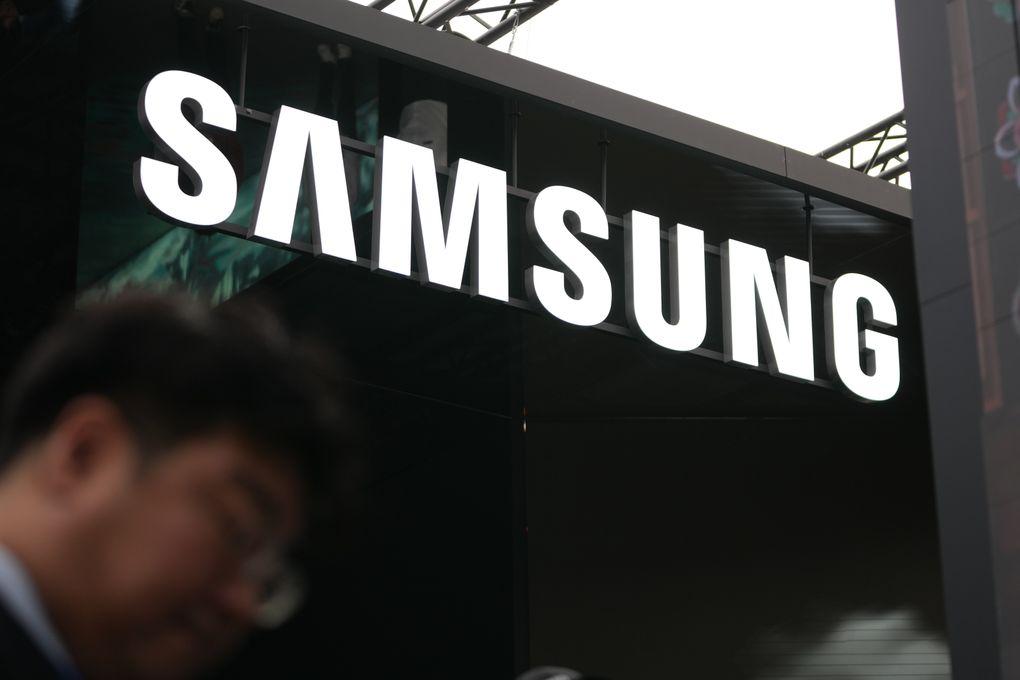South Korea's $350 Billion Investment in US Strategic Industries: Policy Institutions to Lead, AI Focus Emphasized
3 Sources
3 Sources
[1]
Exclusive: Top South Korea official says policy institutions to lead on $350 billion US fund, watching FX
SEOUL, Sept 4 (Reuters) - South Korea's pledge to invest $350 billion in strategic U.S. industries as part of a trade deal with Washington is likely to be led by state policy institutions that will provide funding on a case-by-case basis, the country's vice finance minister said. Under a trade deal struck in July to cap U.S. tariffs at 15%, the countries agreed to a financial package to support industries such as shipbuilding, key minerals, batteries, pharmaceuticals, chips and AI, although officials in Seoul have said details on implementing the plan still need to be hashed out. "We basically look at the $350 billion as a limit so it won't be raised all at once, but rather we will be able to provide support tailored to situations that may arise," Lee Hyoung-il said on Wednesday in an interview with Reuters. "We plan to prepare it (the package) through policy financial institutions basically," Lee said, declining to confirm whether policy lender Korea Development Bank would be orchestrating the operation. "Nothing has been decided on the issue," an official at the KDB said. State-run lenders such as the KDB provide policy financing and manage funds for public infrastructure and financial market stability. Lee's comments build on assurances from other top Seoul officials that the investment pledge is designed to support commercially viable U.S.-based projects on a capital-call basis as demand arises. The two sides have appeared at times to interpret the fund differently. A South Korean presidential adviser last month denied U.S. claims that Washington would take 90% of the profit from the $350 billion investments. Turning to Wednesday's global bond rout, Lee downplayed concerns that South Korea's bond and foreign exchange markets could face instability due to jitters around debt sales and fiscal discipline. South Korea plans to issue a record amount of bonds next year to fund spending in sectors including AI, semiconductors, research and defence. Lee said authorities would continue to monitor foreign exchange markets and "act to stabilise markets if needed", while conducting talks with the U.S. Department of the Treasury on the dollar-won market. He added the government will review whether the dollar-won trading hours can be further extended, as part of Seoul's push to be included in MSCI's developed market benchmarks. On the broader economy, Lee expects a recovery to accelerate next year when Asia's fourth-largest economy is forecast to grow 1.8%, around its potential growth rate, from a projected expansion of 0.9% this year. Asked about the risk of Korean industry being hollowed out due to U.S. investment commitments, Lee said the government will channel its support into AI to shore up South Korea's role as a key tech exporter and underpin growth. "We need to get on the AI transformation wave to survive," said Lee, citing major interest among companies on physical AI, which integrates AI into areas like robots, cars, shipbuilding and electronics. The country's 728 trillion won ($522 billion) 2026 spending budget follows up on some of the promises President Lee Jae Myung gave on the campaign trail to shore up an economy hit by U.S. tariffs and demographic challenges. Reporting by Cynthia Kim Editing by Ed Davies and Shri Navaratnam Our Standards: The Thomson Reuters Trust Principles., opens new tab
[2]
Exclusive-Top South Korea Official Says Policy Institutions to Lead on $350 Billion US Fund, Watching FX
By Cynthia Kim and Yena Park SEOUL (Reuters) -South Korea's pledge to invest $350 billion in strategic U.S. industries as part of a trade deal with Washington is likely to be led by state policy institutions that will provide funding on a case-by-case basis, the country's vice finance minister said. Under a trade deal struck in July to cap U.S. tariffs at 15%, the countries agreed to a financial package to support industries such as shipbuilding, key minerals, batteries, pharmaceuticals, chips and AI, although officials in Seoul have said details on implementing the plan still need to be hashed out. "We basically look at the $350 billion as a limit so it won't be raised all at once, but rather we will be able to provide support tailored to situations that may arise," Lee Hyoung-il said on Wednesday in an interview with Reuters. "We plan to prepare it (the package) through policy financial institutions basically," Lee said, declining to confirm whether policy lender Korea Development Bank would be orchestrating the operation. "Nothing has been decided on the issue," an official at the KDB said. State-run lenders such as the KDB provide policy financing and manage funds for public infrastructure and financial market stability. Lee's comments build on assurances from other top Seoul officials that the investment pledge is designed to support commercially viable U.S.-based projects on a capital-call basis as demand arises. The two sides have appeared at times to interpret the fund differently. A South Korean presidential adviser last month denied U.S. claims that Washington would take 90% of the profit from the $350 billion investments. Turning to Wednesday's global bond rout, Lee downplayed concerns that South Korea's bond and foreign exchange markets could face instability due to jitters around debt sales and fiscal discipline. South Korea plans to issue a record amount of bonds next year to fund spending in sectors including AI, semiconductors, research and defence. Lee said authorities would continue to monitor foreign exchange markets and "act to stabilise markets if needed", while conducting talks with the U.S. Department of the Treasury on the dollar-won market. He added the government will review whether the dollar-won trading hours can be further extended, as part of Seoul's push to be included in MSCI's developed market benchmarks. On the broader economy, Lee expects a recovery to accelerate next year when Asia's fourth-largest economy is forecast to grow 1.8%, around its potential growth rate, from a projected expansion of 0.9% this year. Asked about the risk of Korean industry being hollowed out due to U.S. investment commitments, Lee said the government will channel its support into AI to shore up South Korea's role as a key tech exporter and underpin growth. "We need to get on the AI transformation wave to survive," said Lee, citing major interest among companies on physical AI, which integrates AI into areas like robots, cars, shipbuilding and electronics. The country's 728 trillion won ($522 billion) 2026 spending budget follows up on some of the promises President Lee Jae Myung gave on the campaign trail to shore up an economy hit by U.S. tariffs and demographic challenges. (Reporting by Cynthia KimEditing by Ed Davies and Shri Navaratnam)
[3]
Exclusive-Top South Korea official says policy institutions to lead on $350 billion US fund, watching FX
SEOUL (Reuters) -South Korea's pledge to invest $350 billion in strategic U.S. industries as part of a trade deal with Washington is likely to be led by state policy institutions that will provide funding on a case-by-case basis, the country's vice finance minister said. Under a trade deal struck in July to cap U.S. tariffs at 15%, the countries agreed to a financial package to support industries such as shipbuilding, key minerals, batteries, pharmaceuticals, chips and AI, although officials in Seoul have said details on implementing the plan still need to be hashed out. "We basically look at the $350 billion as a limit so it won't be raised all at once, but rather we will be able to provide support tailored to situations that may arise," Lee Hyoung-il said on Wednesday in an interview with Reuters. "We plan to prepare it (the package) through policy financial institutions basically," Lee said, declining to confirm whether policy lender Korea Development Bank would be orchestrating the operation. "Nothing has been decided on the issue," an official at the KDB said. State-run lenders such as the KDB provide policy financing and manage funds for public infrastructure and financial market stability. Lee's comments build on assurances from other top Seoul officials that the investment pledge is designed to support commercially viable U.S.-based projects on a capital-call basis as demand arises. The two sides have appeared at times to interpret the fund differently. A South Korean presidential adviser last month denied U.S. claims that Washington would take 90% of the profit from the $350 billion investments. Turning to Wednesday's global bond rout, Lee downplayed concerns that South Korea's bond and foreign exchange markets could face instability due to jitters around debt sales and fiscal discipline. South Korea plans to issue a record amount of bonds next year to fund spending in sectors including AI, semiconductors, research and defence. Lee said authorities would continue to monitor foreign exchange markets and "act to stabilise markets if needed", while conducting talks with the U.S. Department of the Treasury on the dollar-won market. He added the government will review whether the dollar-won trading hours can be further extended, as part of Seoul's push to be included in MSCI's developed market benchmarks. On the broader economy, Lee expects a recovery to accelerate next year when Asia's fourth-largest economy is forecast to grow 1.8%, around its potential growth rate, from a projected expansion of 0.9% this year. Asked about the risk of Korean industry being hollowed out due to U.S. investment commitments, Lee said the government will channel its support into AI to shore up South Korea's role as a key tech exporter and underpin growth. "We need to get on the AI transformation wave to survive," said Lee, citing major interest among companies on physical AI, which integrates AI into areas like robots, cars, shipbuilding and electronics. The country's 728 trillion won ($522 billion) 2026 spending budget follows up on some of the promises President Lee Jae Myung gave on the campaign trail to shore up an economy hit by U.S. tariffs and demographic challenges. (Reporting by Cynthia KimEditing by Ed Davies and Shri Navaratnam) By Cynthia Kim and Yena Park
Share
Share
Copy Link
South Korea's vice finance minister outlines plans for a $350 billion investment in US strategic industries, emphasizing the role of policy institutions and a focus on AI development.
South Korea's $350 Billion Investment Plan
South Korea has pledged to invest $350 billion in strategic U.S. industries as part of a trade deal with Washington. This significant financial commitment is likely to be spearheaded by state policy institutions, according to South Korea's vice finance minister, Lee Hyoung-il
1
.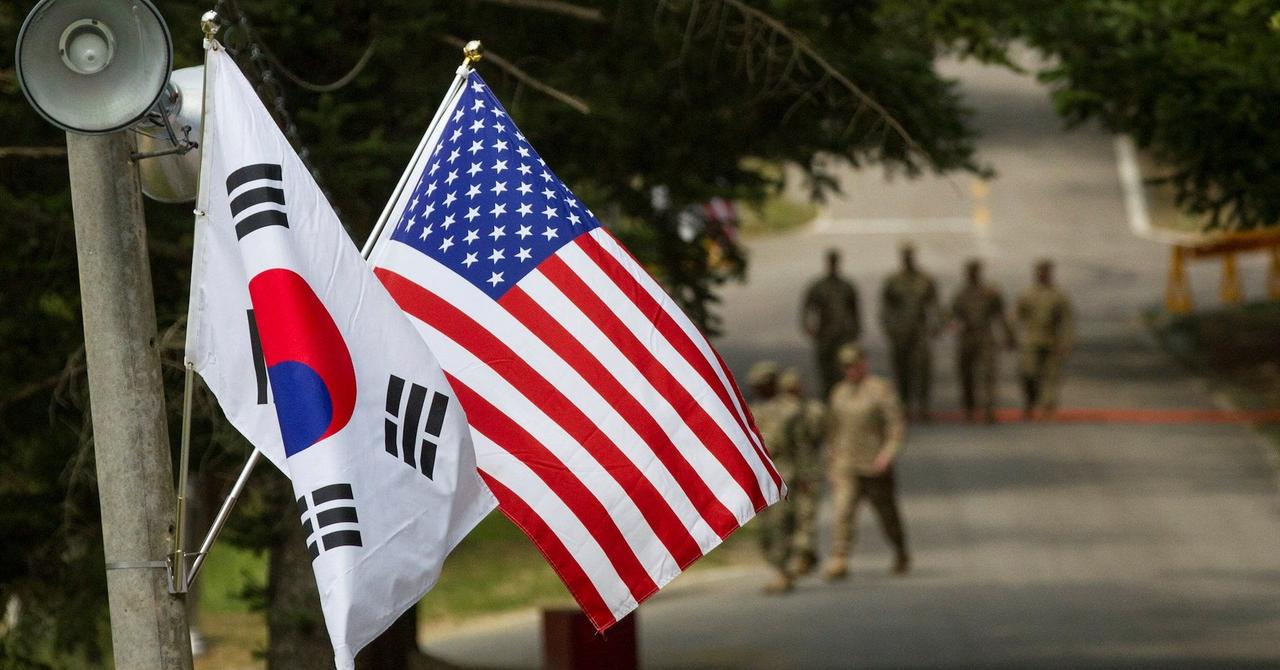
Source: Reuters
The investment package, agreed upon in July 2025, aims to support various sectors including shipbuilding, key minerals, batteries, pharmaceuticals, semiconductors, and artificial intelligence (AI). This deal also includes a cap on U.S. tariffs at 15%
2
.Flexible Funding Approach
Lee Hyoung-il emphasized that the $350 billion is viewed as a ceiling rather than an immediate lump sum investment. He stated, "We basically look at the $350 billion as a limit so it won't be raised all at once, but rather we will be able to provide support tailored to situations that may arise"
3
.The funding is expected to be managed through policy financial institutions, although Lee declined to confirm whether the Korea Development Bank (KDB) would be orchestrating the operation. These state-run lenders typically provide policy financing and manage funds for public infrastructure and financial market stability.
Divergent Interpretations and Economic Outlook
There have been some discrepancies in how the two countries interpret the fund. A South Korean presidential adviser recently denied U.S. claims that Washington would take 90% of the profit from the $350 billion investments
1
.On the economic front, Lee expects South Korea's recovery to accelerate next year, with a projected growth of 1.8%, up from 0.9% in the current year. The government plans to issue a record amount of bonds to fund spending in sectors including AI, semiconductors, research, and defense
2
.Related Stories
Focus on AI and Technology
Addressing concerns about the potential hollowing out of Korean industry due to U.S. investment commitments, Lee emphasized the government's intention to channel support into AI. This strategy aims to reinforce South Korea's position as a key tech exporter and underpin growth.
Lee stressed the importance of embracing AI, stating, "We need to get on the AI transformation wave to survive." He highlighted significant interest among companies in physical AI, which integrates AI into areas such as robotics, automotive, shipbuilding, and electronics
3
.Financial Market Stability and Future Plans
The vice finance minister downplayed concerns about potential instability in South Korea's bond and foreign exchange markets due to debt sales and fiscal discipline issues. He assured that authorities would continue to monitor foreign exchange markets and take necessary actions to maintain stability
1
.Additionally, the government is considering extending dollar-won trading hours as part of Seoul's efforts to be included in MSCI's developed market benchmarks. These initiatives, along with the substantial 2026 spending budget of 728 trillion won ($522 billion), align with President Lee Jae Myung's campaign promises to bolster an economy affected by U.S. tariffs and demographic challenges
2
.References
Summarized by
Navi
[2]
Related Stories
South Korea and US Negotiate $350 Billion Investment Deal with Focus on AI and Strategic Industries
26 Aug 2025•Business and Economy
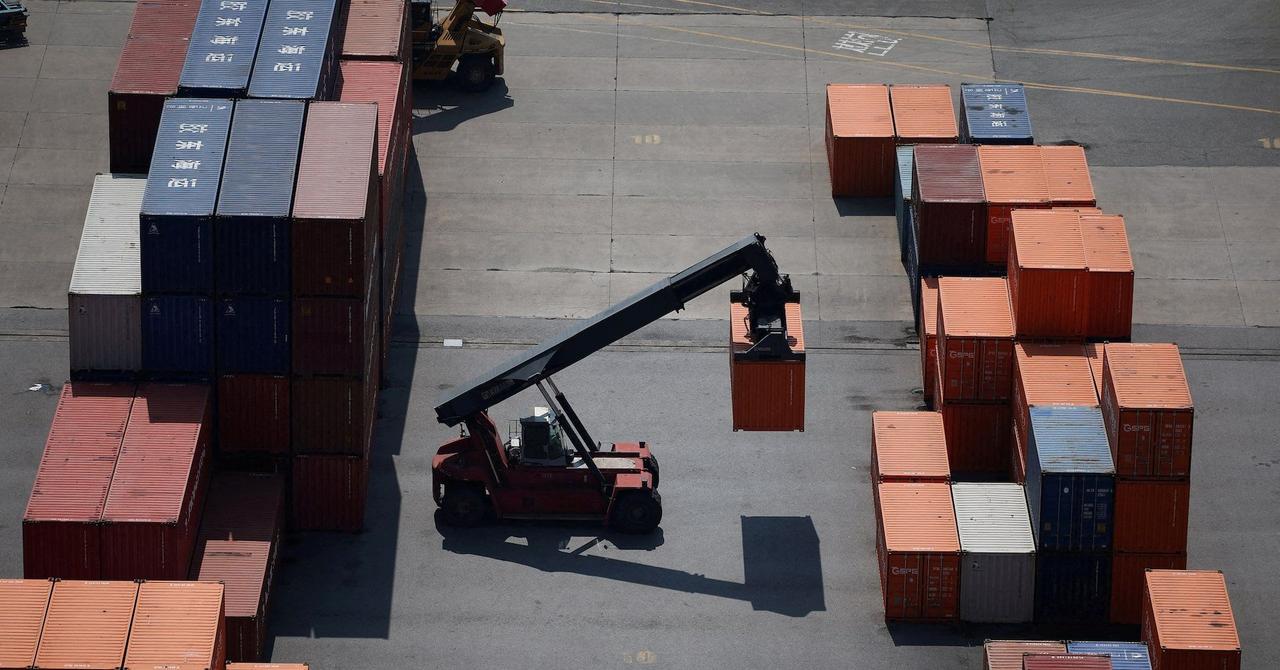
South Korea Unveils Ambitious Budget Plan to Boost AI-Led Economic Growth
30 Aug 2025•Business and Economy
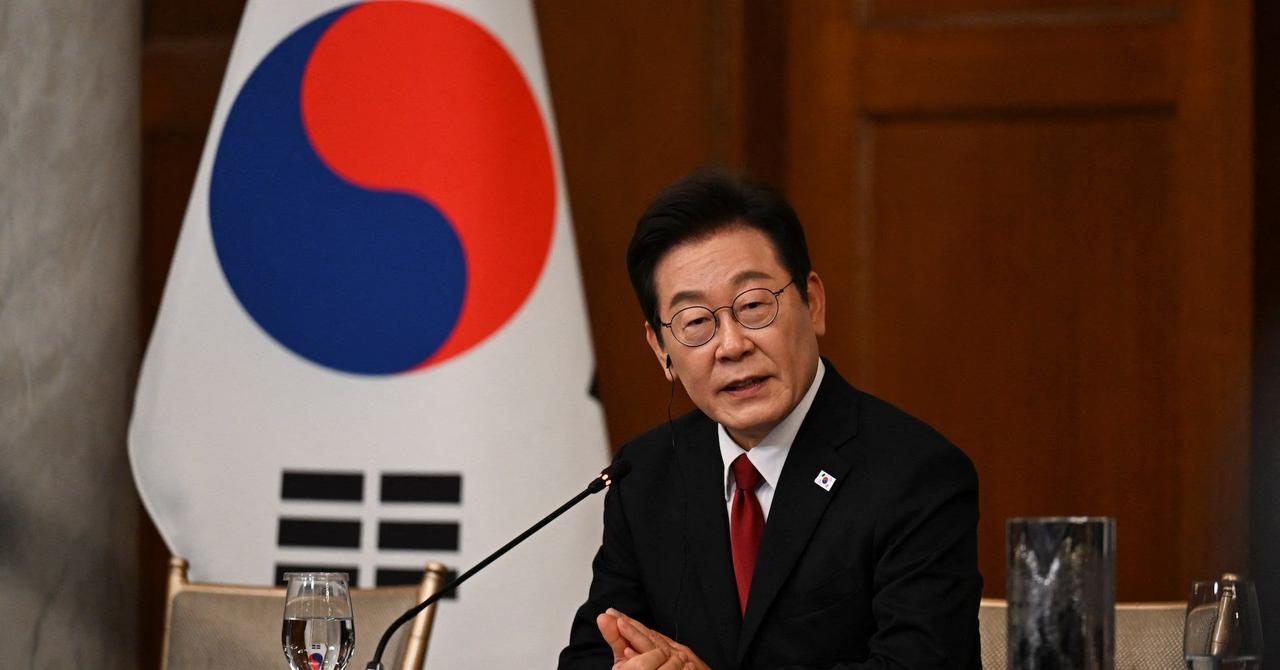
South Korea Prioritizes AI Investment to Boost Economic Growth Amid Challenges
22 Aug 2025•Technology
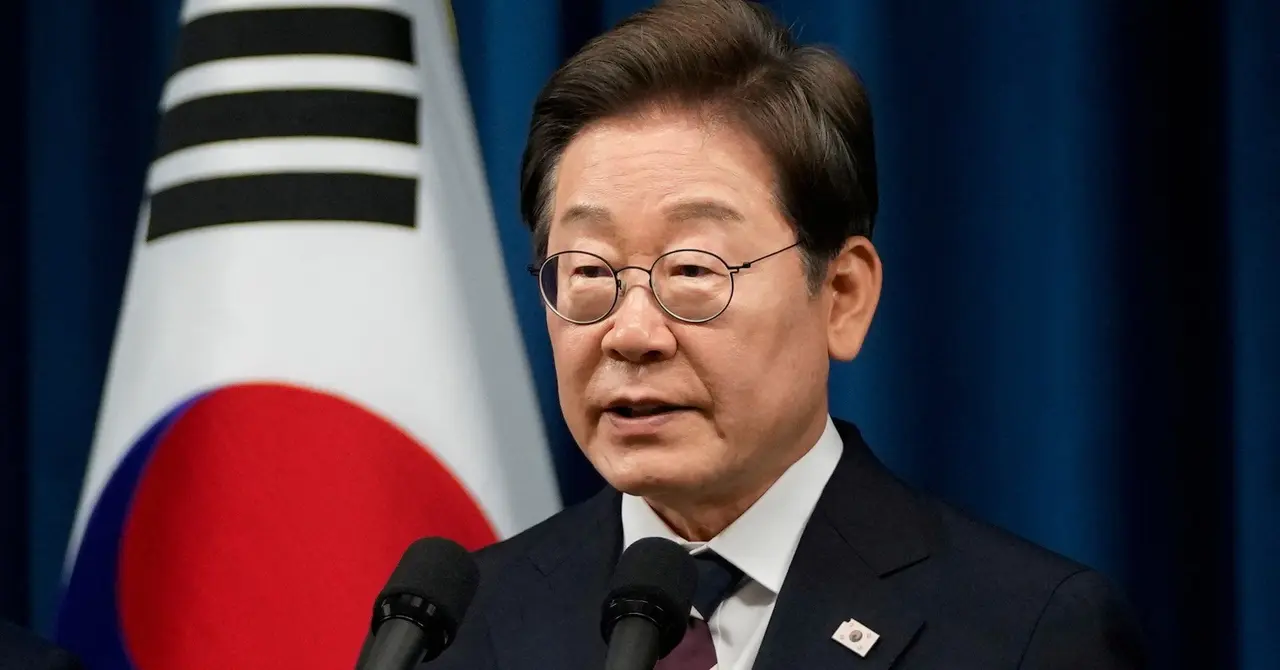
Recent Highlights
1
Pentagon threatens Anthropic with Defense Production Act over AI military use restrictions
Policy and Regulation

2
Google Gemini 3.1 Pro doubles reasoning score, beats rivals in key AI benchmarks
Technology

3
Anthropic accuses Chinese AI labs of stealing Claude through 24,000 fake accounts
Policy and Regulation

